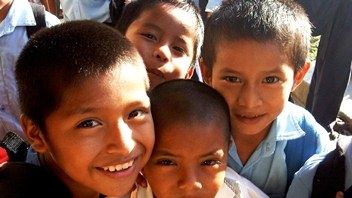Giving birth and growing up in Belize’s District of Toledo can be a struggle. While it boasts cultural diversity and green landscapes, Toledo also features the highest rates of poverty and nutritional deficiencies among all districts in the country.
Data collected by the Ministry of Health in 2011 indicates that 24% of women of childbearing age are anemic. In addition, 60% of primary school-aged children in Toledo’s rural communities face anemia and worm infestation. Worm infestation and anemia, particularly in malnourished children, can affect physical and mental development, thus decreasing learning.
These problems affect mostly the Mopan and Qechi Mayas – who are the largest indigenous communities in the District of Toledo, but whose precise population size remains unknown. An initiative supported by UNICEF in 2011, identified 7,000 children as not been registered.
Together with the Belize Ministry of Health, specialists from the World Bank and the Japanese Social Development Fund (JSDF) are working on a joint initiative to dramatically change these figures over the next two and a half years.
Growth monitoring
Belize’s Ministry of Health secured a grant to enhance accessibility to healthcare services, particularly for indigenous women and children in rural communities. The US$3 million JSDF grant is being implemented in partnership with the World Bank.
“This project will support prenatal care for pregnant women to ensure the health of the mom and well-being of the baby, continuing with nutrition and growth monitoring, while promoting a healthy lifestyle among primary school children,” says Carmen Carpio, World Bank task team leader for the grant.
The first effort is to carry a baseline survey in the first half of 2013, which will provide the Ministry of Health with current data regarding worm infestation, anemia, and prenatal care seeking behaviors, community participation in child growth monitoring, school feeding programs, among other issues.

